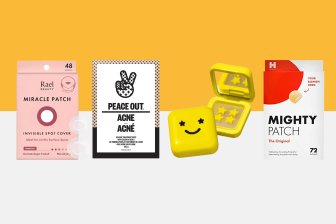Australian native James Harrison, who has donated blood every week for 60 years, saving over 2.4 million babies in the process, is hanging up his “golden arm” for good.

The 81-year-old has become known as the “man with the golden arm” because his blood contains disease-fighting antibodies that have been used to develop an injection called Anti-D, which helps fight against rhesus disease.
Anti-D is given to mothers whose blood is at risk of attacking their unborn babies, according to the Blood Service. The illness can cause anemia, enlarged liver or spleen, and in worst cases, can result in brain damage or even death in newborns. The condition, called Haemolytic Disease of the Newborn (HDN), is developed when a pregnant woman has rhesus-negative blood (RhD negative), while the baby she’s carrying has rhesus-positive blood (RhD positive).
A mother who has been sensitized to receive rhesus-positive blood during a pregnancy with a rhesus-positive baby may produce antibodies that destroy her unborn child’s “foreign” blood cells.
WATCH: Saint John man makes 900th blood donation

Because of Harrison’s blood, more than three million doses of Anti-D have been issued to Australian mothers with rhesus-negative blood since 1967, according to the release from the Australian Red Cross.
Upon making his final blood donation this past Friday, Harrison put out the challenge to the Australian community to beat his record – Harrison has donated over 1,100 times.
“I hope it’s a record that somebody breaks, because it will mean they are dedicated to the cause,” Harrison said.
WATCH: 10-year-old Leukemia patient Adam Foreman’s wish: “Blood donations so others can survive”

In addition, Harrison’s contribution has made Australia the first country in the world to be self-sufficient in its supply of Anti-D injections.
“Australia owes a big thank you to James Harrison. Australia became the first country in the world to be self-sufficient in the supply of Anti-D, and cases of HDN are rare,” spokesperson Jemma Falkenmire said in a statement to the Australian Red Cross.
Falkenmire told CNN in 2015 that up until 1967 – the year Harrison began donating – “there were literally thousands of babies dying each year, doctors didn’t know why, and it was awful. Women were having numerous miscarriages and babies were being born with brain damage. Australia was one of the first countries to discover a blood donor with this antibody, so it was quite revolutionary at the time.”
- Ontario doctors offer solutions to help address shortage of family physicians
- Capital gains changes are ‘really fair,’ Freeland says, as doctors cry foul
- ‘Dangerous message’: Experts slam anti-sunscreen claims circulating online
- ‘Trying not to die’: Tourism operators loaded with debt despite rising demand
The Blood Service also issued a call Friday for more male donors to follow Harrison’s example.
“Medications like Anti-D are a life-giving intervention for thousands of Australian mums, but they are only available because men like James give blood,”
Harrison realized his blood was unique when he was a teenager, when doctors discovered that the antibodies in his blood could be used to create Anti-D injections.
While doctors haven’t been able to pin down a root cause for Harrison’s rare blood type, they believe it might stem from transfusions he received when he underwent surgery at the age of 14. According to CNN, he’s one of 50 people across Australia to have these antibodies.
Harrison has been recognized several times for this achievement and has also been a vocal advocate for the practice. In 1999, Harrison was awarded the Medal of the Order of Australia for his “service to the community.”







Comments